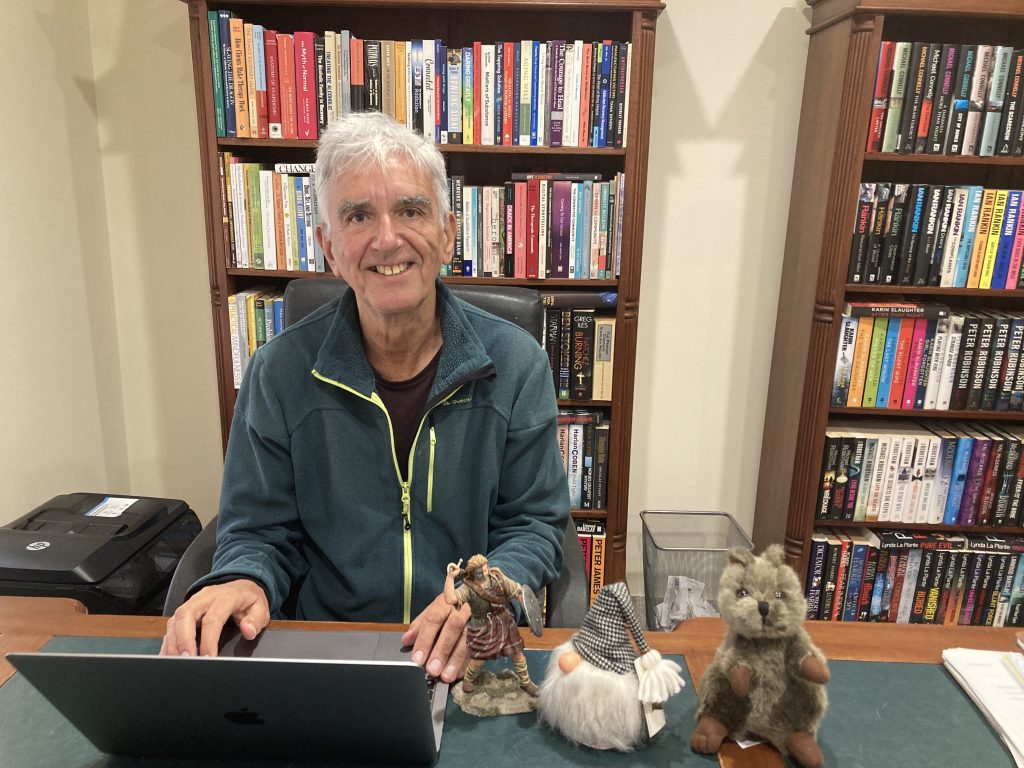 First of all, my apologies for not posting on this website for a couple of months. I’ve been largely focused on one of my other websites, Recovery Voices, which I run with my good friend Wulf Livingston from North Wales. Our website focuses on capturing conversations about what works in supporting recovery from addiction, and in the development of peer-led recovery communities, from a range of individuals with lived experience, as well as friends of recovery.
First of all, my apologies for not posting on this website for a couple of months. I’ve been largely focused on one of my other websites, Recovery Voices, which I run with my good friend Wulf Livingston from North Wales. Our website focuses on capturing conversations about what works in supporting recovery from addiction, and in the development of peer-led recovery communities, from a range of individuals with lived experience, as well as friends of recovery.
We’ve now interviewed nine people for this website, some on more than one occasion. Content related to seven of these people is currently on the website, whilst we are ‘working up’ two other conversations. The website takes up a good deal of my time, as I am doing a great deal of film editing (over 400 films clips), as well as creating lots of written content. I’ve also been busy working on what I originally planned to be a book relating to my work journey.
As some of you will know, I’ve had a varied career, which includes running a neuroscience laboratory, developing the grassroots initiative Wired In and online community Wired In To Recovery, and running a project which focused on traumatised Aboriginal children who went on to create beautiful landscape art that captivated people around the world.
My work has focused on recovery from addiction, mental health problems and trauma (including transgenerational trauma), as well as Indigenous healing practices. I’ve been a storyteller, researcher, educator, community developer, and recovery advocate.
Since starting to work in the addiction field back in 2000, I’ve always been conscious of the need to generate high quality content to inform and educate others, be it whether they are a person affected by a substance use problem, either directly or indirectly, a practitioner, policy maker, or a member of the general public. In the early days, I was surprised how many practitioners knew so little about their field of so-called expertise. [Of course, other practitioners were very knowledgeable.]
I was also aware of my own shortcomings in knowledge and understanding. I would sometimes say to myself, ‘Why have I only just learnt about this… after being in the field for a decade?’ These instances made me all the more determined to learn more myself, and disseminate quality content to others.
When I started working in the field, the voices of recovering people in the UK were mere whispers. I was determined to help ‘amplify’ these voices and increase their number substantially. I wanted to highlight the courage of recovering people in overcoming their problems, and show how many of them went on to help other people find recovery. And become assets in their wider community. From Pain to Power!
Now, in my 70th year, I have become even more conscious of what leading US recovery advocate Bill White says in his book Recovery Rising (pp. 444-446) about leaving a personal legacy for the field, so that others and the field as a whole can benefit from one’s personal knowledge, understanding, and experiences. I’d like to think that some people will find their way to my writings and learn a gem of wisdom that may otherwise have taken them years to find. And this new ‘wisdom’ may make a difference to the lives of people in need of their help.
So I’m trying to ensure that my writings (old and new) will be left in a safe place for the day I am not around (either because I’m not here, or I have properly retired from the field). I also realised I needed to write about my journey in the field. Not just for the story itself (and certainly not for any glory), but to help enhance understanding in the field, thank those who have joined me on my journey, and thank the many people who have inspired me whilst I have taken this journey. And once again, I want to highlight the voices of recovering people.
So I started writing a book, which I thought I publish initially in an eBook format. However, I’ve recently decided that this story must first appear on this Recovery Stories website. So here is your link to the draft of the first 22 Chapters of My Journey: From Brain Chemicals to Human Connection. Warts and all! And I should warn you—I don’t hold back in discussing the shortcomings I have seen in the field.

With my support team (on desk) and great love (books) before the soft launch of Recovery Voices. Perth, Western Australia, 23 September 2023.


